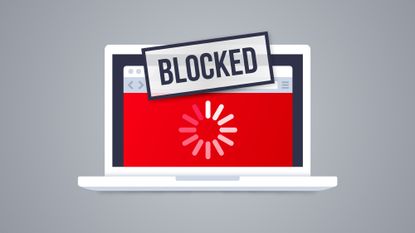Net neutrality is back. And so is the battle over it.
Old internet rules are being reinstated, but the internet has changed since last time


Net neutrality used to be a thing. Then it wasn't. Now it is again. The Federal Communications Commission on Thursday voted to restore the Obama-era internet regulations known as "net neutrality," The New York Times said, after they were repealed during the Trump Administration. The controversial new-old rules aim to prevent internet service providers "from blocking or degrading the delivery of services from competitors like Netflix and YouTube." Net neutrality means all internet users should have unrestricted access to web content.
Will internet users see a difference? Probably not. Net neutrality's "reinstatement isn't expected to noticeably change users' online experience," said The Associated Press, thanks largely to state-level net neutrality rules passed before the federal repeal. But supporters said it is important to enshrine the principle, and that the "company that connects you to the internet does not get to control what you do on the internet," said the advocacy group Public Knowledge.
Critics believe the new rules "solve a problem that has not been particularly pervasive," said The Hill. When the original net neutrality rules were overturned in 2017, there were predictions that providers like Comcast and Xfinity would "throttle" (aka slow down on purpose) services like YouTube for competitive or financial reasons. That didn't happen. "None of the apocalyptic predictions came to pass," said Republican FCC Commissioner Brendan Carr. But this doesn't mean the fight is over: The FCC's move is "likely to prompt lawsuits from industry groups," The Hill said.
Subscribe to The Week
Escape your echo chamber. Get the facts behind the news, plus analysis from multiple perspectives.

Sign up for The Week's Free Newsletters
From our morning news briefing to a weekly Good News Newsletter, get the best of The Week delivered directly to your inbox.
From our morning news briefing to a weekly Good News Newsletter, get the best of The Week delivered directly to your inbox.
'How the internet has always worked'
"Why does the FCC need this power?" The Wall Street Journal said in an editorial. It's already the case that providers "don't block, throttle or charge more to speed up sites." The new rules, however, give the FCC "sweeping political control over the internet." The truth is that there is "no legal, economic or equity justification" for reimposing net neutrality regulations. The new rules instead are "about asserting political control over more of the private economy — no matter the consequences."
The new rules establish that the FCC has the authority "to step in when internet service providers are blocking or interfering with the free flow of information online," Craig Aaron said at The Seattle Times. Telecom companies will challenge the rule, even though polls say net neutrality rules are popular on "the political left, right and center." Americans have come to expect internet service without throttling or other gatekeeping imposed by providers. "Net neutrality is so necessary because it's how the internet has always worked," Aaron added.
One complication: The internet of 2024 is different from the internet of the Obama Administration. Now the question of where the internet "begins and ends has become murkier," The Washington Post said. The online world has moved from desktops to phones and a "growing number of items connected to the internet, from robot vacuum cleaners to entire factories." The new rules allow "fast lanes" for enterprise services, and critics say that might create a loophole "large enough to exempt a significant chunk of the internet from regulation."
Spam texts, AI also regulated
Thursday's vote goes beyond net neutrality. The measure "redefined internet service as similar to legacy telephone lines," CNN said, giving the FCC more power to regulate "spam robotexts, internet outages, digital privacy and expanding high-speed internet access." FCC Chair Jessica Rosenworcel said the measure would also keep providers from selling consumer data or using it to train artificial intelligence models.
Advocates insist that greater reach is necessary because the internet has become so much more pervasive, and home access to it so much more necessary following COVID-19. "The landscape of communications dynamics shifted violently for U.S. workers in the post-pandemic era," said Wired, but Americans in most communities have little control over the quality of internet services they receive because there are so few providers — they're "locked" into a "de facto monopoly." Americans "need broadband to reach 100% of us," Rosenworcel said, "and we need it fast, open and fair."
Sign up for Today's Best Articles in your inbox
A free daily email with the biggest news stories of the day – and the best features from TheWeek.com
Joel Mathis is a writer with 30 years of newspaper and online journalism experience. His work also regularly appears in National Geographic and The Kansas City Star. His awards include best online commentary at the Online News Association and (twice) at the City and Regional Magazine Association.
-
 5 reflective podcasts you may have missed this fall
5 reflective podcasts you may have missed this fallThe Week Recommends Shining a light on the NYPD, Hollywood's rock groupies of the '60s and '70s, and more
By Theara Coleman, The Week US Published
-
 Rupert Murdoch loses 'Succession' court battle
Rupert Murdoch loses 'Succession' court battleSpeed Read Murdoch wanted to give full control of his empire to son Lachlan, ensuring Fox News' right-wing editorial slant
By Peter Weber, The Week US Published
-
 Penny acquitted in NYC subway choking death
Penny acquitted in NYC subway choking deathSpeed Read Daniel Penny was found not guilty of homicide in the 2023 choking death of Jordan Neely
By Rafi Schwartz, The Week US Published
-
 Who will win the coming US-China trade war?
Who will win the coming US-China trade war?Talking Points Trump's election makes a tariff battle likely
By Joel Mathis, The Week US Published
-
 Brendan Carr, Trump's FCC pick, takes aim at Big Tech
Brendan Carr, Trump's FCC pick, takes aim at Big TechIn the Spotlight The next FCC commissioner wants to end content moderation practices on social media sites
By David Faris Published
-
 The political latitude of Musk's cost-cutting task force
The political latitude of Musk's cost-cutting task forceTalking Points A $2 trillion goal. And big obstacles in the way.
By Joel Mathis, The Week US Published
-
 The Pentagon faces an uncertain future with Trump
The Pentagon faces an uncertain future with TrumpTalking Point The president-elect has nominated conservative commentator Pete Hegseth to lead the Defense Department
By Justin Klawans, The Week US Published
-
 'The burden of the tariff would be regressive'
'The burden of the tariff would be regressive'Instant Opinion Opinion, comment and editorials of the day
By Justin Klawans, The Week US Published
-
 Should Sonia Sotomayor retire from the Supreme Court?
Should Sonia Sotomayor retire from the Supreme Court?Talking Points Democrats worry about repeating the history of Ruth Bader Ginsburg
By Joel Mathis, The Week US Published
-
 'We might need to fiddle with our technology more than we think'
'We might need to fiddle with our technology more than we think'Instant Opinion Opinion, comment and editorials of the day
By Justin Klawans, The Week US Published
-
 Donald Trump and the fascism debate
Donald Trump and the fascism debateTalking Points Democrats sound the alarm, but Republicans say 'it's always the F-word'
By Joel Mathis, The Week US Published